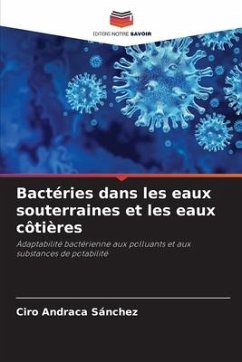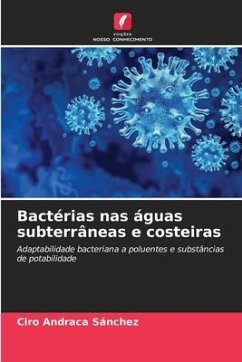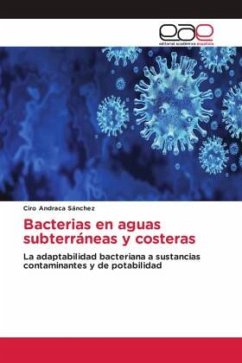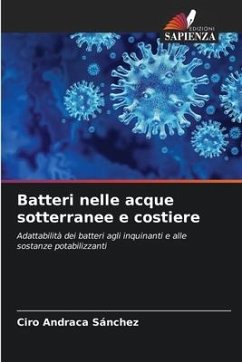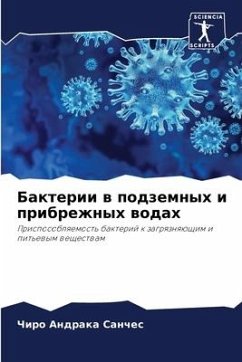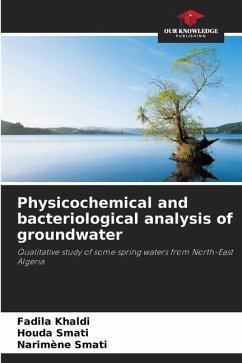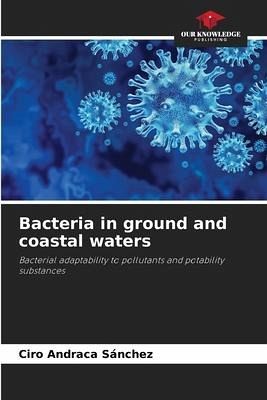
Bacteria in ground and coastal waters
Bacterial adaptability to pollutants and potability substances
Versandkostenfrei!
Versandfertig in 6-10 Tagen
40,99 €
inkl. MwSt.

PAYBACK Punkte
20 °P sammeln!
The presence of bacteria in water, on the one hand, represents a potential risk to the health of the population, and on the other hand, shows the adaptability to chemical pollutants that affect the environment.The contamination of water by different pathogens demands the search for alternatives to ensure its potabilization and avoid gastrointestinal diseases. In this sense, the use of chlorine has been fundamental to inactivate waterborne microorganisms. However, its use is linked to the potential formation of toxic by-products, which can represent a risk to public health. On the other hand, b...
The presence of bacteria in water, on the one hand, represents a potential risk to the health of the population, and on the other hand, shows the adaptability to chemical pollutants that affect the environment.The contamination of water by different pathogens demands the search for alternatives to ensure its potabilization and avoid gastrointestinal diseases. In this sense, the use of chlorine has been fundamental to inactivate waterborne microorganisms. However, its use is linked to the potential formation of toxic by-products, which can represent a risk to public health. On the other hand, bacteria also play an important role in soil and water remediation by growing and degrading different contaminants, such as different hydrocarbons (HCs).



